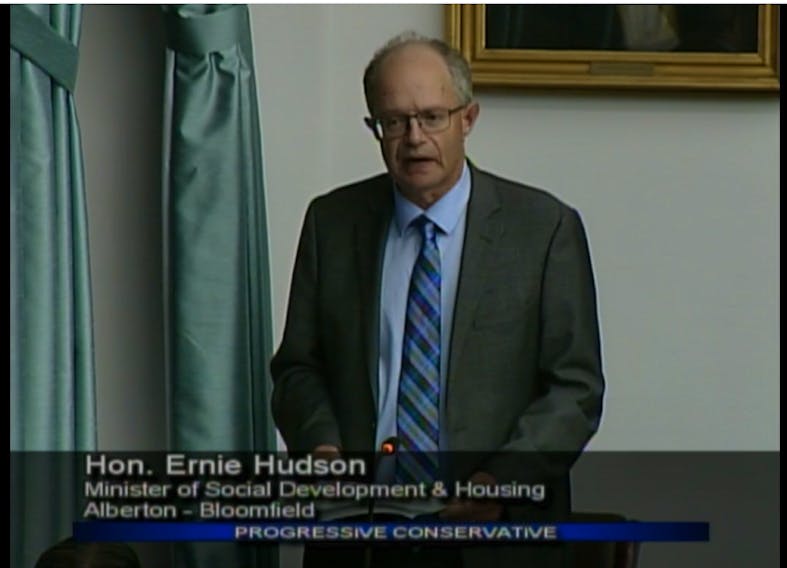A key council established to advise the province on decisions related to people with disabilities has been dissolved despite a recent auditor general’s report chastising the province for its absence.
On Thursday, Social Development and Housing Minister Ernie Hudson told MLAs that the seven-member AccessAbility Advisory Council has not met since April of 2018. The terms of the members of the council have also expired.
The 2020 auditor general’s report stated that the council is mandated to meet six times per year and to advise the minister on disability supports in the province.
Hudson said a new staff member was hired in November by his department to improve programming for persons with disabilities.
“One of her actions has been to contact the members of the council to see if they are still interested in being a part of the council. That work was slowed down by COVID, but the council will resume this year,” Hudson told the legislature on Thursday.
The council was established when the previous Liberal government revamped disability supports on P.E.I., introducing the AccessAbility Support Program. The introduction of the new program followed a human rights panel that found that existing disability support programs discriminated against people with mental illness.
Although many disability advocates on P.E.I. heralded the AccessAbility Support program as an improvement, the auditor general found that the program had been implemented before key policies were in place and that the program was “not well managed”.
"The reason it doesn't (exits) is that the terms of the individuals who sat on that council had expired. Staff had reached out to some of them – as I understand to all of them – to make them aware that the advisory council is going to be put in place once more."
Hudson’s remarks on Thursday were in response to questions levelled on Wednesday from Green MLA Hannah Bell.
“According to the most recent auditor general’s report, that advisory council has not met for two years, including the period of time when the new policies and legislation were developed for people with disabilities and implemented,” Bell said.
“Why has the council not met and who are you getting input, consultation and advice from in its absence?”
In response, Hudson said he took the report seriously but said the report’s release coincided with the beginning of the COVID-19 pandemic.
In an interview, Hudson said he gave the previous government credit for implementing the AAS program.
"But at the same time, was it maybe rushed a bit? I would say," Hudson said.
Hudson also said his department plans to implement all of the auditor general’s recommendations by the end of 2020.
However, he acknowledged the AccessAbility Advisory Council does not currently exist.
"The reason it doesn't is that the terms of the individuals who sat on that council had expired,” Hudson said.
“Staff had reached out to some of them – as I understand to all of them – to make them aware that the advisory council is going to be put in place once more."
In an op-ed published in The Guardian on Thursday, Marcia Carroll, executive director of the P.E.I. Council of People with Disabilities, listed numerous areas in which people with disabilities have been negatively affected by the province’s COVID-19 response.
The areas included a lack of access to medical supports, such as physiotherapy, and the lack of sign language interpretation in government briefings on COVID-19.
“During the COVID-19 pandemic we have seen the disability rights movement regress, and the rights and needs of Canadians living with disabilities have been, for the most part, left out of the conversations and response,” Carroll wrote.









